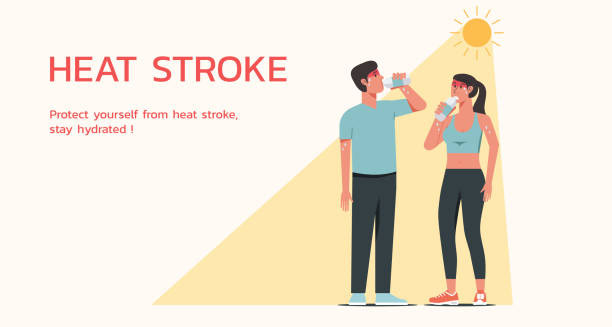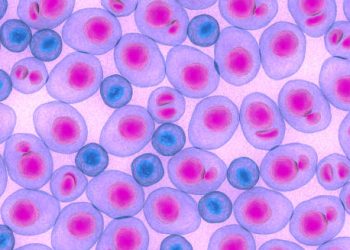Outlook for Heatstroke
The outlook for heatstroke depends heavily on how quickly the condition is recognised and treated. In cases where core temperature is reduced within the first 30 minutes of symptom onset, the prognosis is generally favourable. However, if intervention is delayed, heatstroke can result in permanent organ damage, neurological impairment, or death. Therefore, the outlook for heatstroke is directly tied to the speed and effectiveness of medical response, as well as the individual’s underlying health and the severity of the episode.
When treated promptly and properly, many individuals recover fully from heatstroke within a few days to a few weeks. Young and healthy people—like athletes or workers who get heatstroke from too much physical effort—usually recover quickly and have no long-term problems. This is especially true if they are cooled down early and serious issues are prevented. Once the person is stable, it is best to take a short break, drink plenty of water, and slowly return to daily activities. Furthermore, with the right knowledge and careful steps, these people can often get back to their usual physical routines.
Older adults, infants, and people with chronic health conditions
However, the outlook for heatstroke is far less certain in older adults, infants, and people with chronic health conditions. These groups may not present with classic symptoms, and delays in diagnosis are more likely. Even with treatment, the risk of long-term damage is higher. For example, elderly patients may suffer from a decline in functional status, worsening of pre-existing conditions, or prolonged hospitalisation. Recovery may take weeks or months, and some never return to their previous level of independence or health.
Neurological recovery is one of the most significant determinants of long-term outcome. If brain function is impaired due to cerebral oedema, prolonged unconsciousness, or seizures, patients may experience lasting effects. These can range from memory loss and cognitive deficits to motor coordination issues, speech difficulties, or personality changes. Some survivors of severe heatstroke require rehabilitation services, including physical therapy, occupational therapy, and neurocognitive support. In extreme cases, permanent disability may result.
Outlook for Heatstroke
Kidney function is another area of concern. Patients who develop acute kidney injury (AKI)—especially those with rhabdomyolysis—are at risk for chronic kidney disease, particularly if they had pre-existing renal impairment. While many recover full function with supportive care, others may experience reduced glomerular filtration rates or proteinuria in the months following their heatstroke episode. Regular follow-up with a nephrologist may be necessary to monitor long-term renal health.
Cardiac complications—including arrhythmias, ischaemia, or heart failure—may also leave lasting damage. Patients with existing cardiovascular disease who suffer heatstroke often require close cardiology follow-up, medication adjustment, and restrictions on future exertional activities in hot conditions. Repeat episodes of heat stress can compound this damage over time.
In individuals who develop liver dysfunction during heatstroke, the outlook varies depending on the severity and duration of hepatic injury. Mild to moderate liver enzyme elevations typically resolve with supportive care, but cases of fulminant hepatic failure carry a poor prognosis without liver transplantation. These patients are monitored closely during the acute phase and may require long-term hepatology care.
Psychological and emotional recovery is an often-overlooked aspect of the post-heatstroke period. Survivors may experience anxiety, depression, or post-traumatic stress, especially if they endured prolonged ICU stays, organ support interventions, or periods of disorientation and memory loss. Athletes and outdoor workers may fear returning to high-intensity activities, while elderly patients may lose confidence in their ability to remain safe during heat events. Counselling, reassurance, and structured return-to-activity programmes are essential components of recovery.
Outlook for Heatstroke
Some individuals, particularly those who have suffered recurrent heat illness, develop heat intolerance. They may experience symptoms such as fatigue, light-headedness, and excessive sweating even during mild heat exposure or physical exertion. This can impact lifestyle, employment, and mental well-being. In these cases, permanent work modifications or lifestyle adjustments may be necessary.
On a broader scale, the outlook for heatstroke is increasingly influenced by global climate change. Rising temperatures, longer heatwaves, and higher humidity levels are leading to more frequent and severe cases of heat-related illness. Urban areas with high population densities and limited green space are particularly vulnerable. However, increased public health awareness, better access to cooling resources, and more robust emergency response protocols have improved outcomes in many regions.
Strategies to Reduce Mortality
The implementation of early warning systems, community cooling centres, and public education campaigns has helped reduce mortality during heatwaves in countries like France, Australia, and the United States. As these strategies become more widespread, the community-level prognosis for heatstroke will continue to improve. Nevertheless, equity in access remains a major concern, particularly in low-income or underserved populations.
In healthcare settings, improved training among emergency personnel and the use of rapid cooling techniques—such as ice water immersion, mist-and-fan systems, and specialised cooling blankets—have significantly increased survival rates. In exertional heatstroke, particularly among athletes, survival is above 90% when core temperature is reduced within 30 minutes of collapse.
From a public health perspective, preventing heatstroke in the first place is far more effective than treating it. But when it does occur, a well-coordinated response and post-event follow-up can greatly improve the overall outcome.
Outlook for Heatstroke
In conclusion, the outlook for heatstroke is variable, ranging from full recovery to permanent disability or death. Key determinants include the speed of treatment, the patient’s age and health status, and the presence of complications like organ failure or neurological impairment. With rapid intervention, supportive care, and long-term monitoring, most patients survive and regain function. However, increased awareness, education, and climate adaptation strategies are urgently needed to protect vulnerable individuals and improve outcomes on a societal scale.


